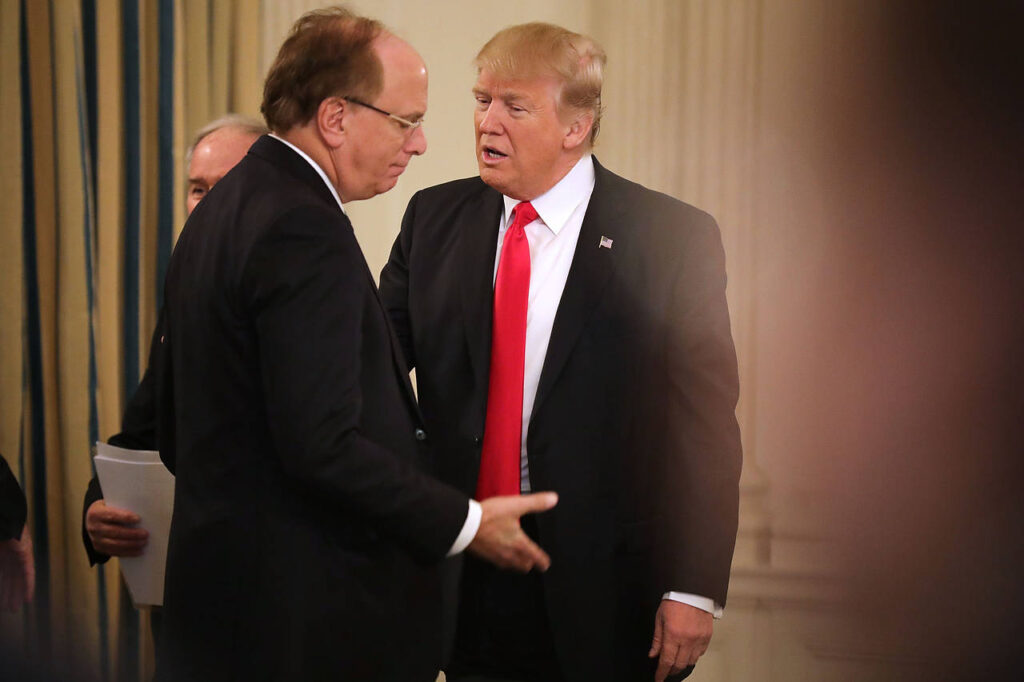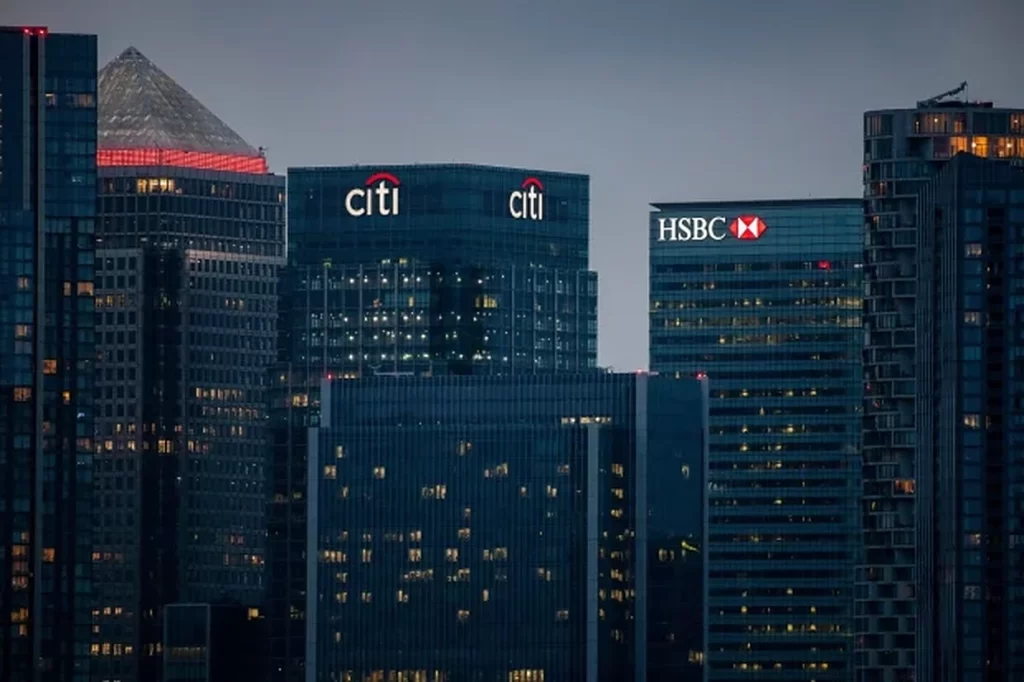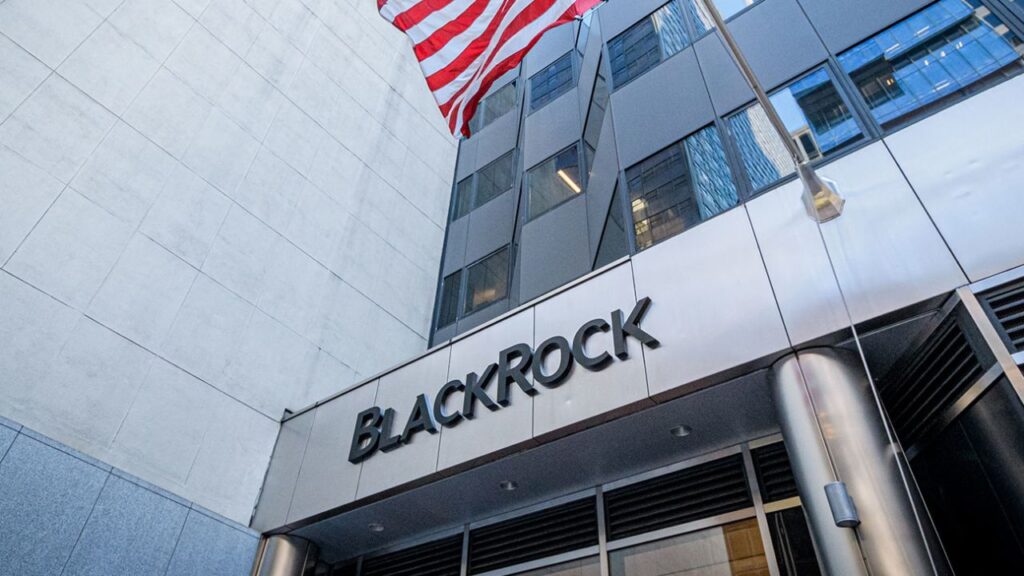Google Cloud, the $225-billion cloud and data service provider, has recently joined the ranks of companies showing interest in Bitcoin.
In a partnership with Voltage, an infrastructure provider specializing in the Bitcoin Lightning Network, Google Cloud aims to expand its Bitcoin-based services globally while assisting Voltage in expanding its operations.
Through this collaboration, Voltage will leverage Google Cloud to cater to its customers on a global scale.
Graham Krizek, CEO of Voltage, explained that they have larger customers who require nodes deployed in specific geographic regions such as the U.K. or Asia.
READ MORE: Abnormally Large Outflows Spark Fears of Exploit
On the other hand, Google can utilize Voltage as an outsourced Bitcoin and Lightning team, supporting companies interested in integrating Bitcoin or Lightning into their services.
The announcement of the partnership has garnered significant attention on social media, highlighting Google’s growing understanding and acceptance of Bitcoin and Lightning.
However, the implications of this collaboration run deeper than mere interest.
Christopher Calicott, managing director of venture capital firm Tramell Venture Partners, revealed that former Googlers had expressed how such unexpected social media engagement captures the attention of Google.
Additionally, Google’s open-minded approach to Lightning sets it apart from its competitor, Apple. Apple recently removed Damus, a Lightning-friendly decentralized social media protocol, from the App Store, indicating its aversion to Lightning.
Calicott suggested that the tech industry may be warming up to Lightning, particularly those involved in payment services.
Operating under the umbrella of Alphabet, Google Cloud benefits from its parent company’s extensive reach. Google Pay, the payment platform, boasts millions of users across more than 15 countries.
Since 2020, Google Ventures (GV), the investment arm of Google, has exhibited a strong interest in blockchain, Web3 companies, and Bitcoin.
GV participated in a $6-million seed round for Voltage in 2021, indicating the growing momentum in the crypto space.
Despite Apple’s actions, Lightning continues to gain traction among billion-dollar businesses worldwide.
One of Mexico’s largest companies has started experimenting with Lightning, and major crypto exchanges like Binance and Coinbase have promised Lightning integrations.
While it is still early in the adoption process, industry observers like Calicott emphasize the need to monitor its growth. Krizek, with his experience in the Bitcoin space since 2012, stressed the significance of the partnership.
As organizations are exposed to Bitcoin and its possibilities through Lightning, the increasing interest and demand have already captured their attention.
Krizek expects more services to be rolled out soon, accompanied by efforts in Bitcoin education.
According to a report by JPMorgan managing director Nikolaos Panigirtzoglou, the approval of a spot Bitcoin exchange-traded fund (ETF) in the United States may not have a significant impact on crypto markets, but it could benefit the leading cryptocurrency.
Panigirtzoglou, based in London, is part of JPMorgan’s global market strategy team and believes that a Bitcoin ETF in the US would have a similar effect as those seen in Canada and Europe, where such ETFs have been available for some time.
The report reveals that Bitcoin ETFs have generally attracted little investor interest in other jurisdictions over the past two years.
They have also failed to benefit from investor outflows from gold ETFs.
READ MORE: Top Executives Depart Binance Amidst Legal Scrutiny and Compliance Concerns
Despite this, Panigirtzoglou sees potential benefits if a Bitcoin ETF is approved in the US.
He suggests that it could bring more liquidity to Bitcoin markets and possibly lead to a shift in trading activity from BTC futures products.
Panigirtzoglou’s perspective differs from the high expectations surrounding the approval of a Bitcoin ETF in the United States. BlackRock’s CEO, Larry Fink, expressed during an interview on July 6 that investors might turn to Bitcoin as a hedge against inflation and the devaluation of fiat currencies.
Fink emphasized that Bitcoin is an international asset, not tied to any specific currency, making it an alternative asset for people to consider.
The annual inflation rate for the US, as reported by the Labor Department, was 4.0% for the 12 months ending in May.
The success of BlackRock in filling ETFs has generated optimism that their attempt to launch a Bitcoin ETF might also succeed.
Data from Bloomberg Intelligence’s Eric Balchunas and James Seyffart indicates that only one out of the 550 funds filed by BlackRock has been rejected to date.
Following BlackRock’s application, other companies such as Invesco, Fidelity, WisdomTree, and ARK Invest have also submitted applications or refilings with the Securities and Exchange Commission (SEC).
However, it’s worth noting that the SEC has previously denied several applications for Bitcoin ETFs.
In conclusion, while the approval of a Bitcoin ETF in the US may not be a game changer for crypto markets, it could have some positive implications for the leading cryptocurrency, such as increased liquidity and potential shifts in trading activity.
However, the overall impact might not be as significant as some anticipate, considering the historical investor interest in Bitcoin ETFs in other jurisdictions.
Bitcoin Mining Stocks Outperform BTC with Impressive Gains, but Potential Risks Loom
Bitcoin mining companies have significantly outperformed Bitcoin itself amid the recent bullish price action in the cryptocurrency market.
The top nine publicly traded Bitcoin mining firms have seen an average year-to-date stock price gain of 257.14% in 2023, nearly three times higher than Bitcoin’s gain in the same period.
The leveraged beta effect explains the higher gains of mining stocks.
READ MORE: Crypto Investor Discovers $322,000 Worth of Ether (ETH)
When Bitcoin experiences an upward trend, these stocks tend to outperform, while they face greater downside risk during Bitcoin slumps.
Consequently, the performance of Bitcoin will remain a crucial factor in determining the direction of mining stocks.
While miners are positioning themselves for the long term by expanding their operations and purchasing more machines, the accumulation levels have not matched those of previous bull markets.
This suggests that the upward trend in mining stocks may stall in the medium term.
Recent developments within the mining sector have added to positive sentiments and long-term value.
Some mining companies have made significant moves, such as Hut 8 Mining merging with US Bitcoin Corp, increasing its total hash rate to become the third-largest public mining entity in the US.
Cleanspark also invested to increase its hash rate, and Riot Blockchain entered a deal with mining hardware manufacturer MicroBT to double its hash rate capacity by 2024.
However, on-chain data reveals that miners have been selling a significant portion of their holdings, which could indicate an impending downturn.
Additionally, some mining stocks, like Marathon Digital Holdings, Riot Blockchain, and Cipher Mining, have attracted a substantial amount of short interest, possibly due to excessive debt and stock dilution, which can impact existing shareholders’ profitability.
While mining profits have improved, miners continue to sell their Bitcoin holdings.
The network’s total hash rate reached a new all-time high initially but has since dropped due to heat waves in Texas, where some mining farms are located.
The profitability of running miners has increased with Bitcoin’s price surpassing $30,000, but companies with operations in Texas may face losses due to the adverse climate conditions.
Despite revenue improvements, miners have been allocating funds to expansion and operation costs, suggesting that a full-fledged crypto bull market is yet to materialize.
The expansion plans of mining companies and the decline in on-chain miner holdings indicate a potential sideways price action or a correction in mining stocks if the BTC price drops.
The Bitcoin Legal Defense Fund (BLDF) argues that a recent report released by the United Kingdom’s Law Commission could undermine a crucial argument made by Craig Wright in his controversial lawsuit against 12 Bitcoin core developers.
The 300-page report, which focuses on digital assets, was published in late June by the Law Commission, an independent organization responsible for reviewing and recommending reforms to UK and Welsh laws.
It includes a classification of fiduciary duty that supports the developers’ defense, asserting that they are not directly responsible for the loss of 111,000 Bitcoin (BTC) valued at approximately $30,170, due to hacking.
READ MORE: Coinbase, Binance and Gemini have least happy employees
In his lawsuit filed in 2021, Craig Wright, the owner of Tulip Trading, claimed that the developers involved in the open-source development of Bitcoin Core owed him a fiduciary duty regarding his financial loss.
Wright is seeking access to the Bitcoin Core blockchain as a means to recover the allegedly stolen funds. He is also known for asserting that he is the pseudonymous creator of Bitcoin, Satoshi Nakamoto.
The UK report delves into the definition of fiduciary duty, identifying recognized categories such as “agents, trustees, partners, company directors, and solicitors.”
The report emphasizes that fiduciary duty rarely exists outside of these established categories. The BLDF, acting as the developers’ legal representative, argues that the defendants do not fall into any of the criteria outlined by the Law Commission.
In a recent blog post, the BLDF stated, “They are not agents, trustees, partners, company directors, or solicitors, and they never undertook or were entrusted with authority to manage the property or make discretionary decisions on behalf of another person.”
Furthermore, the BLDF emphasized that Bitcoin was designed to facilitate transactions between individuals without the need for third-party authority.
The outcome of the Tulip Trading lawsuit could establish a legal precedent for the liability of open-source developers concerning assets.
The trial is expected to take place in 2024 and could have far-reaching implications for the community of open-source developers, as 97% of the world’s software programs are open-sourced, as noted by Jessica Jonas, Chief Legal Officer of the BLDF, during the Bitcoin 2023 conference in May.
The UK Law Commission report also advocates for the creation of a new and distinct category of personal property to accommodate the unique characteristics of digital assets.
Bitcoin’s recent price drop to $30,098 has sparked discussions about the future of the cryptocurrency and the direction of its development.
Vitalik Buterin, co-founder of Ethereum, believes that the rise of projects like Ordinals signals the resurgence of a builder culture in the Bitcoin network.
In a Twitter Space conversation with Bitcoin proponents Eric Wall and Udi Wertheimer, Buterin praised Ordinals and its BRC-20 token standard as a rejection of the stagnant politics within the Bitcoin ecosystem.
READ MORE: Crypto Exchange Launches Public Testnet for v4, Paving the Way for Full Decentralization
According to Buterin, Ordinals are reintroducing a culture of action and pushing back against the laser-eye movement, which he views as positive progress.
The main focus of the two-hour-long conversation revolved around scalability.
Wall expressed concerns about Bitcoin’s Lightning Network, stating that it struggles to scale for future users and frequently fails when processing medium-sized payments.
Buterin proposed that a solution would be to implement various layer-2 solutions and find ways to enhance the efficiency of the Bitcoin base layer.
He emphasized the importance of rollups and ZK-snark-based scaling solutions.
Wertheimer added that zero-knowledge rollups could potentially enable smart contracts on Bitcoin, creating a new execution environment.
However, proponents of the Ordinals project, such as Wall and Wertheimer, face criticism from traditional Bitcoin advocates.
Some argue that introducing NFTs and smart contracts on Bitcoin dilutes its primary function as a peer-to-peer cash network.
Samson Mow, CEO of Jan3, believes that Ordinals waste valuable block space that should be allocated to Bitcoin payments.
Wall responded to these criticisms by suggesting that Bitcoin could serve as a proof system for zero-knowledge proofs, avoiding network congestion.
He expressed the desire to utilize the Bitcoin base layer as a judge or arbiter of computations, rather than running them on-chain.
Wall urged the community to consider second layers as a means of achieving expressive capabilities, not just facilitating payments.
The discussion sparked controversy within the Bitcoin community, with Wertheimer criticizing Samson Mow and Adam Beck, CEO of Blockstream, for dismissing the conversation with Buterin.
The clash of opinions highlights the ongoing debate about the future of Bitcoin’s development and the potential for increased functionality within its network.
As Bitcoin enters this new era of development, it remains to be seen how the community will navigate these conflicting perspectives and shape the future of the world’s largest cryptocurrency.
Larry Fink, the CEO of BlackRock, the world’s largest asset management firm, recently vocalized his support for cryptocurrencies during an interview on Fox Business.
This comes as BlackRock applies to list a Bitcoin exchange-traded fund (ETF) in the U.S, a move that could revolutionize finance by providing an accessible investment tool linked directly to Bitcoin.
In the interview, Fink characterized cryptocurrency’s role as essentially “digitizing gold”, implying that it could serve as an alternative investment asset that isn’t tied to any specific currency.
He suggested that Bitcoin could provide investors with a way to protect against inflation and currency devaluation, signaling an international asset appeal.
Fink’s commentary on the crypto landscape has been consistent. He has weighed in on various important occurrences within the sector, such as the FTX downfall in 2022 and the growing intrigue surrounding Bitcoin.
READ MORE: Law Firm Seeks Huge Compensation From Voyager Digital’s Creditors
Given BlackRock’s influence, with over $9 trillion in assets under management as of April, Fink’s pro-crypto statements could trigger substantial impacts both within and outside the cryptocurrency domain.
Crypto enthusiasts online have reacted favorably to Fink’s pro-Bitcoin commentary, with some predicting a potential surge in certain asset prices, referred to as the “Fink Pump”.
At the time of the interview, Bitcoin’s price stood at $30,473, a slight 1% decline from the previous 24 hours.
It’s worth noting that under Fink’s leadership, BlackRock has pursued the launch of a Bitcoin ETF, with crypto giant Coinbase as a surveillance partner.
However, the outcome remains uncertain as the U.S Securities and Exchange Commission has previously rejected all spot Bitcoin ETF applications.
Fink’s positive stance on crypto could potentially tip the scales in favor of such advancements, marking a milestone for cryptocurrency integration into traditional finance.
Bitcoin miners experienced a significant boost in earnings during the second quarter of 2023, as transaction fees reached a staggering $184 million.
This figure surpasses the total transaction fee earnings for the entire year of 2022, showcasing the remarkable growth in profitability.
The latest data from cryptocurrency analytics platform Coin Metrics reveals that this represents a remarkable increase of over 270% from the first quarter of 2023.
Moreover, it marks the first time since the second quarter of 2021 that quarterly transaction fees have exceeded $100 million.
READ MORE: How A Crypto Trader Turned $900 Into $176,000 With Pepe 2.0
This surge in fees can be attributed to two key factors. Firstly, Bitcoin’s price surge played a crucial role in bolstering top-line revenues.
Additionally, the introduction of BRC-20, a new token standard on the Bitcoin network, has expanded the possibilities for various use cases and accelerated the scalability of the network through the Lightning Network.
It is important to note that transaction fees accounted for only 7.7% of the total $2.4 billion earned by miners throughout the quarter.
The majority of their earnings still came from Bitcoin block rewards, which currently stand at 6.25 BTC per solved block.
However, this reward is set to decrease to 3.125 BTC following the network’s anticipated halving in May 2024.
Beyond their substantial earnings, Bitcoin miners had additional reasons to celebrate in Q2.
The blocking of the proposed Digital Asset Mining Energy tax by the Biden administration was a notable win for the mining industry.
Additionally, U.S.-based miners benefited from favorable macroeconomic conditions, leading to lower electricity prices due to receding inflation pressures.
Despite these positive developments, the mining fee market has become increasingly competitive as Bitcoin’s hash rate continues to reach new all-time highs.
Coin Metrics reports that the network’s efficiency has improved with the adoption of advanced ASICs like the S19 XP.
The fierce competition underscores the evolving landscape of Bitcoin mining and highlights the need for miners to stay ahead in this rapidly changing environment.
In conclusion, Bitcoin miners enjoyed a highly profitable second quarter of 2023, with transaction fees soaring to $184 million.
This milestone reflects the substantial growth in Bitcoin’s value and the emergence of new token standards.
However, miners must remain vigilant as competition intensifies, and they face the challenges of future halvings and a dynamic mining industry.
According to Blockstream CEO Adam Back, the Bitcoin ecosystem has been hindered by the prevalence of initial coin offerings (ICOs) and the subsequent focus of venture capitalists (VCs) on non-Bitcoin investments.
In a conversation with Cointelegraph’s Joseph Hall at the Lugano Plan B Summer School in Switzerland, Back highlighted the disparity between the lack of VC investment in Bitcoin and its dominant position in the overall cryptocurrency market.
Back referred to a market research report by Trammell Venture Partners, which revealed that VC flows into the ICO frenzy surged after the launch of Ethereum and smart contracts.
However, this trend has declined in recent years as investors sought early liquidity by purchasing discounted tokens and selling them to retail investors before the products were even available.
Back argued that although ICOs generated profits for investors, they often failed to deliver usable products due to misaligned incentives.
READ MORE: US Crypto Hub Still Thriving Despite Regulatory Challenges, Says Blockchain CEO
The Trammell Ventures report indicated that 97% of VC investments in recent years went into “crypto” rather than Bitcoin.
Back emphasized that ICOs, altcoins, and discounted tokens attracted significant investor attention, which was surprising considering the actual real-world utility and adoption of Bitcoin.
He noted that exchange volume primarily consisted of Bitcoin, while the majority of VC spending went to “crypto” ICOs, highlighting the misallocation of resources.
Back pointed out that the underfunding of the Bitcoin space by these types of investors hindered innovation and the creation of valuable products.
However, he also mentioned a positive trend: investment in Bitcoin-related startups, especially at the early stage, had doubled in the last year, indicating renewed interest.
In addition to the discussion on VC funding, it was revealed that Twitter co-founder Jack Dorsey donated $5 million to Brink, a nonprofit organization that supports Bitcoin developers.
Back’s company, Blockstream, and Lightning Labs were recognized as significant contributors to the ongoing development of the Bitcoin protocol, with each employing eight developers dedicated to maintaining the leading cryptocurrency.
Overall, the impact of ICOs on the Bitcoin ecosystem has been significant, with VCs showing a preference for non-Bitcoin investments.
However, recent trends suggest a shift in funding behavior, with renewed interest in Bitcoin-related startups and increased support for Bitcoin developers.
This development bodes well for the continued innovation and advancement of the Bitcoin ecosystem.
The Law Commission of the United Kingdom is advocating for the establishment of a unique category of personal property that caters to the distinct characteristics of cryptocurrencies and digital assets.
In response to a directive from the British government, the commission conducted a comprehensive analysis of common law frameworks in England and Wales to determine how they can effectively accommodate digital assets, including non-fungible tokens (NFTs) and cryptocurrencies.
The most notable recommendation put forth by the commission is the creation of a fresh and distinct category of personal property specifically for digital assets.
The commission intentionally refrained from defining clear boundaries for this proposed category, asserting that the determination of which digital assets fall within this framework should be left to the discretion of the U.K.’s common law system.
According to a statement released by the commission and shared with Cointelegraph, the introduction of a new personal property category would enable a nuanced approach to recognizing a broad spectrum of digital assets, ranging from cryptocurrencies to digitized instruments like carbon emission credits or export quotas.
READ MORE: NFT Blue Chip Collections Plummet to Near Two-Year Lows
In addition to this, the Law Commission proposed the establishment of a panel consisting of industry-specific technical experts, legal practitioners, academics, and judges.
This panel would be responsible for providing non-binding advice to courts regarding various legal issues and considerations pertaining to the digital asset sector.
Another key recommendation put forth by the commission is the development of a tailored legal framework aimed at facilitating the operation and enforcement of collateral arrangements.
Lastly, the commission called for statutory law reforms that would provide clarity on whether specific digital assets fall under the purview of the U.K.’s Financial Collateral Arrangements Regulations of 2003.
The Law Commission’s review of the legal challenges associated with the cryptocurrency sector commenced in October 2022 at the request of the Ministry of Justice.
Subsequently, in March 2023, the U.K. Treasury and Home Office announced their intentions to implement robust regulations on the cryptocurrency sector to combat its potential misuse for criminal activities.
Asset management giant BlackRock’s recent filing for a Bitcoin exchange-traded fund (ETF) has taken an interesting turn with the inclusion of a “surveillance-sharing agreement” with Coinbase, a leading cryptocurrency exchange.
The filing, made on June 29 with the United States Securities and Exchange Commission (SEC), requested a rule change to allow the listing of BlackRock’s Bitcoin ETF on the Nasdaq stock exchange.
The document revealed that a June 8 agreement between Nasdaq and Coinbase was designed to enhance the exchange’s market surveillance program and grant access to data on spot Bitcoin trades.
READ MORE: NFT Blue Chip Collections Plummet to Near Two-Year Lows
This announcement followed ARK Investment Management’s amendment to its own spot Bitcoin ETF application, which incorporated a surveillance-sharing agreement with the Chicago Board Options Exchange (Cboe) and an undisclosed U.S.-based crypto exchange.
Speculation arose that the agreement was with Coinbase, potentially conflicting with BlackRock’s ETF application.
On June 30, the SEC reportedly stated that the crypto ETF filings with Nasdaq and Cboe were insufficiently clear and comprehensive, urging the applicants to provide additional information on surveillance arrangements.
It is worth noting that BlackRock initially submitted its application for the spot Bitcoin ETF on June 15.
Despite several market participants submitting ETF applications linked to cryptocurrency investments, the SEC has yet to approve any spot ETF related to crypto.
In response to the denial of its spot Bitcoin ETF in June 2022, Grayscale Investments filed a lawsuit against the SEC, accusing the regulator of applying inconsistent treatment to similar investment vehicles.
The inclusion of surveillance-sharing agreements in these recent ETF filings reflects a growing emphasis on market surveillance and investor protection.
Regulators are keen to ensure that proper monitoring mechanisms are in place to prevent market manipulation and illicit activities within the crypto space.
By partnering with trusted cryptocurrency exchanges like Coinbase, BlackRock and ARK Investment Management aim to address the SEC’s concerns and provide a transparent and secure environment for investors looking to access Bitcoin through regulated investment vehicles.
As the SEC continues its evaluation of the latest ETF filings, the crypto industry eagerly awaits a breakthrough in the approval of a spot Bitcoin ETF, which could potentially open up new avenues for institutional and retail investors to participate in the crypto market.











